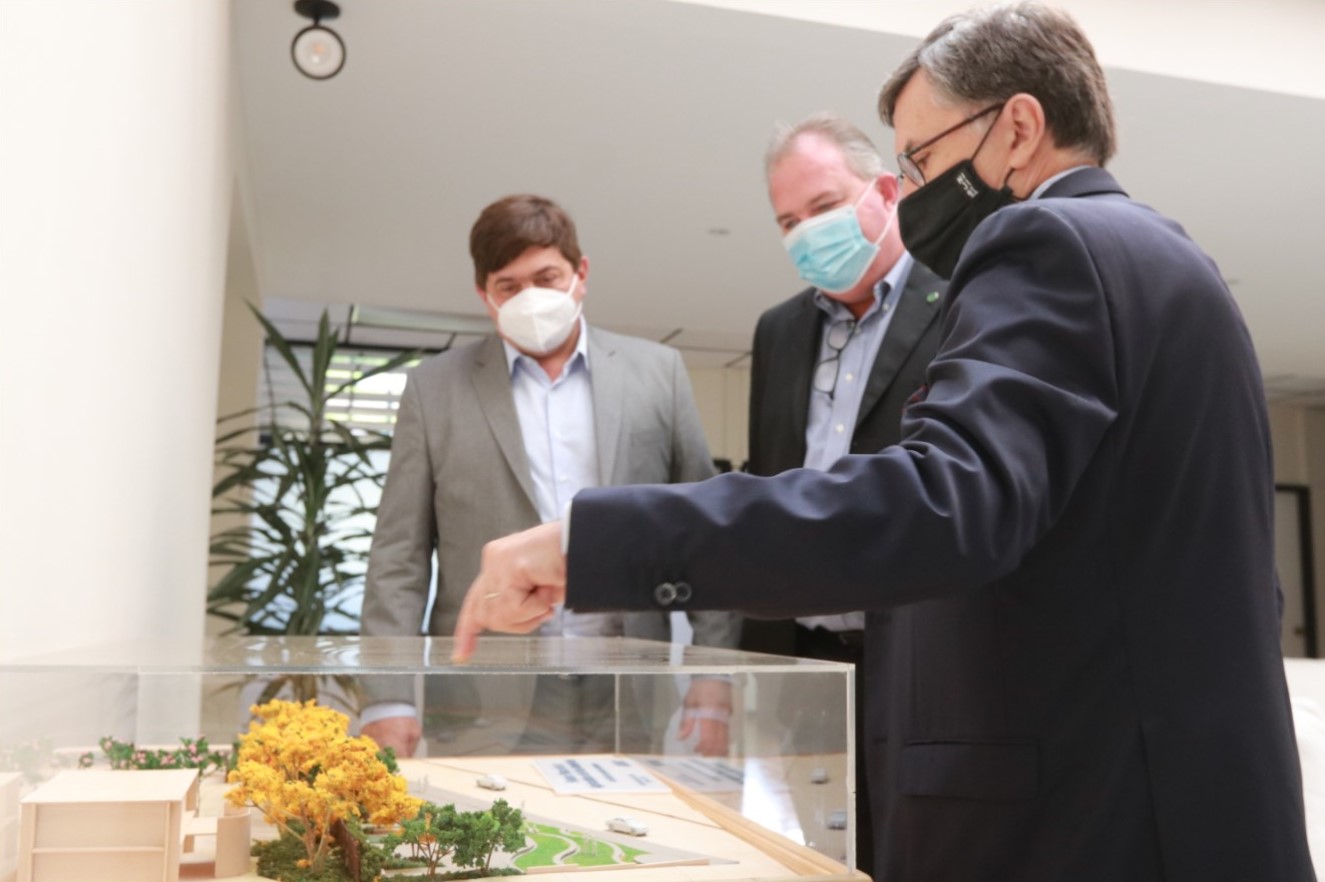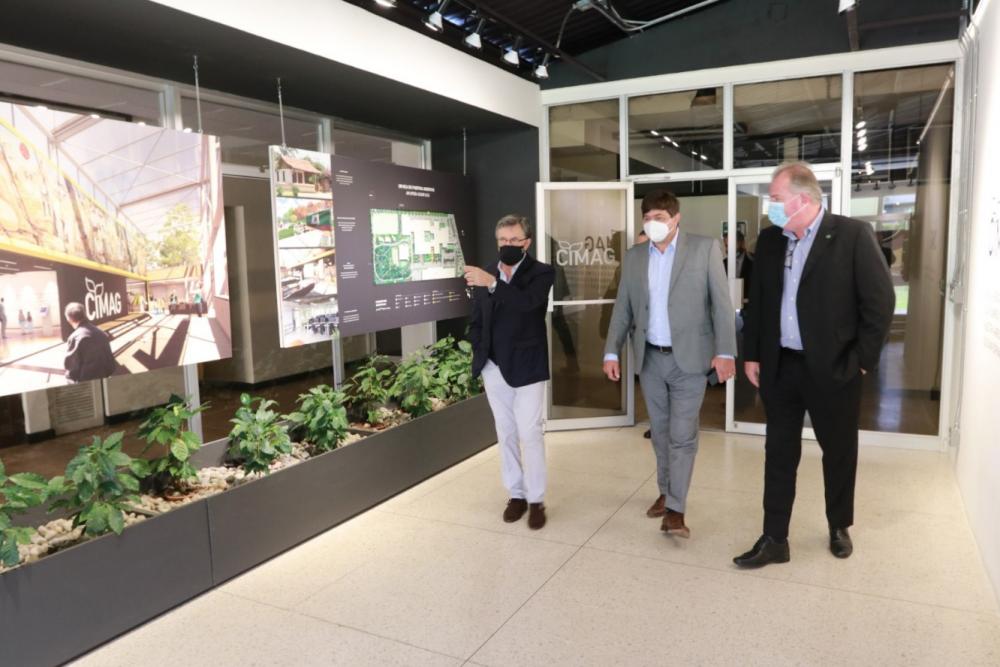Speaking at IICA, Fernando Schwanke, Brazil’s Secretary of Family Farming and Cooperativism, outlined his country’s new generation of public policies to bolster a sector that is key to food security and territorial development.

San Jose, 8 February 2021(IICA) – Abundant credit, dissemination of technology and full access to public and private markets. These are the three strategic pillars with which Brazil is aiming to bolster its family farming base, according to Fernando Schwanke, the country’s Secretary of Family Farming and Cooperativism in the Ministry of Agriculture, Livestock and Food Supply (MAPA).
The official was speaking at the headquarters of the Inter-American Institute for Cooperation on Agriculture (IICA), in Costa Rica, where he was visiting on a technical mission to discuss new opportunities for international cooperation and to strengthen existing ones.
The presentation was moderated by IICA Representative in Argentina, Caio Rocha, and included the online participation of representatives from 34 countries. Schwanke outlined the Government of Brazil’s public policies for family farming and explained the country’s strategies to benefit the agriculture sector and rurality.
“IICA is a key partner of Brazil’s Ministry of Agriculture in the area of cooperation and the implementation of vital projects for the Brazilian agriculture sector”, said Shwanke, who had travelled to Costa Rica with Gabriel Delgado, IICA Representative in Brazil.
While at IICA Headquarters, Shwanke visited initiatives that are part of the Institute’s “IICA of open doors” thrust, such as the Interpretive Center for Tomorrow’s Agriculture (CIMAG), the agritechnology innovation Fab Lab and the Typical Rural House.
He was also briefed about IICA’s technical cooperation programs on the Bioeconomy, Agricultural Health, International Trade, Climate Change and Rural Development.
Schwanke provided details on Brazil’s Plan Zafra 2020/2021, an initiative providing credit to the sector, which saw approximately 6.5 million dollars being made available to the country’s family farming sector through PRONAF, the National Program to Strengthen Family Farming, with annual interest rates of between 2.75% to 4%.

Through PRONAF, 1.4 million agricultural credit agreements were signed with farmers, 600,000 of which were microcredit loans. Since its 2019/2020 edition, the program has enabled family farmers to use these resources to finance, construct or refurbish their rural homes.
The Secretary also provided information on the Ater Digital program, which was launched in October, with the aim of strengthening the Brazilian Technical Assistance and Rural Extension Program, promoting the use of information and communication technologies (ICT).
“With Ater Digital”, said Shwanke, “the goal is to ensure that 50% of Brazilian family farmers have some type of digital Technical Assistance service by 2030. IICA will be a key partner in the implementation of our alliance with PAD—Precision Agriculture for Development— which will target 100,000 farmers in northeast Brazil, starting this year”. PAD, an organization co-founded by Michael Kremer, winner of the Nobel Prize for Economics, will embark on a joint venture with IICA to transmit knowledge and information to small farmers via their mobile phones.
The Brazilian official also touched on other issues such as the AgroResidencia program that offers training in agricultural sciences to young students and recent graduates, as well as on market access for family farming products, which calls for partnerships with cooperatives and international cooperation.
Manuel Otero, Director General of IICA, maintained that, “As a country that is tremendously receptive to technical cooperation and that has achieved some of the best results in the world, in developing its agriculture sector, Brazil must serve as a laboratory, where we are well positioned to create a win-win and increasingly stronger relationship”.
Interview: Fernando Schwanke, Brazilian Secretary of Family Farming and Cooperativism (Spanish only)
More information:
Institutional Communication Division
comunicacion.institucional@iica.int











